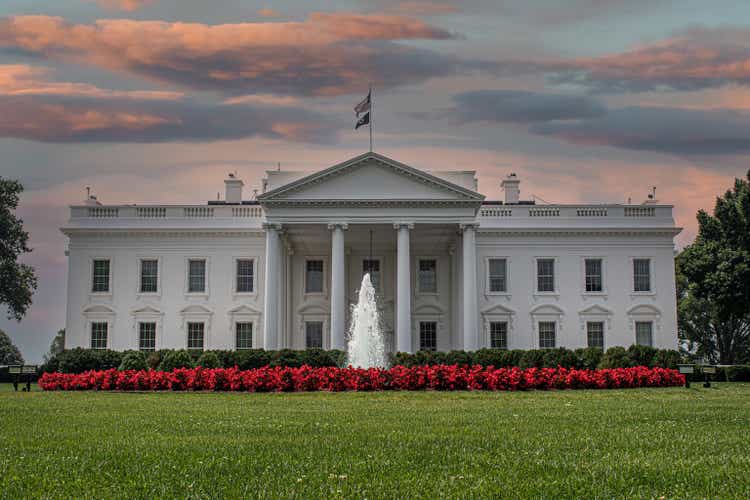
Douglas Rissing
The energy transition in the US is expected to continue, regardless of who is the next president, but companies will need to watch for regulatory and incentive rollbacks, ING Bank said Tuesday.
The US has long been prone to policy inconsistencies through election campaigns, with the most recent example being the Biden administration’s reversal of former President Donald Trump’s energy and climate policies, the landmark Inflation Reduction Act (IRA), stronger regulations on a number of economic activities, and efforts to require reporting on climate data, ESG researcher Coco Zhang and Chief International Economics, US James Knightley said in a note.
The recent ascension of Kamala Harris as the Democratic nominee has brought possible market disruption to the domestic clean energy market, they said.
“Regardless of who becomes president, the IRA is unlikely to be repealed and will continue to be a key piece of legislation facilitating the development of clean energy in the US,” Zhang and Knightley said, adding that the law spurred $200 billion of clean-energy investment.
They said the onshoring of key technology and bolstering mineral supply chains will be a priority for Harris and Trump, while the streamlining of permitting processes for energy projects will have support from both major parties.
However, incentives for electric vehicles ((EVs)) and clean energy loan programs may be scaled by Trump but hydrogen and carbon capture and storage (CCS) would not be impacted as much. Grid modernization efforts would be weaker under a Trump administration while renewable energy would be able to continue receiving tax credits, according to the note.
Harris, meanwhile, is expected to move to the middle, Zhang said in an accompanying note.
“She is likely to preserve the Biden administration’s most important climate legacy, emphasizing a more efficient implementation of the IRA,” Zhang said. “Harris would want to strengthen environmental regulation but her ability to do so would be constrained.”
During her 2020 failed run for the White House, Harris proposed spending $10 trillion to decarbonize the US economy, impose a carbon tax, and ban fracking. However, this time around, she has been “strategically silent” on her energy and climate platform, Zhang said.
For investors looking to track the elections through market instruments, here are some politically driven Republican and Democratic exchange-traded funds:
- God Bless America ETF (YALL)
- American Conservative Values ETF (ACVF)
- Point Bridge America First ETF (MAGA)
- Democratic Large Cap Core ETF (DEMZ)
- Unusual Whales Subversive Democratic ETF (NANC)
- Unusual Whales Subversive Republican ETF (KRUZ)
- Energy ETFs: (XLE), (AMLP), (VDE), (XOP), (OIH), and (IXC).
- Green Energy ETFs: (ICLN), (TAN), (FAN), (GRID), (QCLN), and (ERTH).
For investors looking to track the benchmark S&P 500 (SP500), here are some exchange-traded funds of interest: (VOO), (IVV) (RSP), (SSO), (UPRO), (SH), (SDS), and (SPXU).
